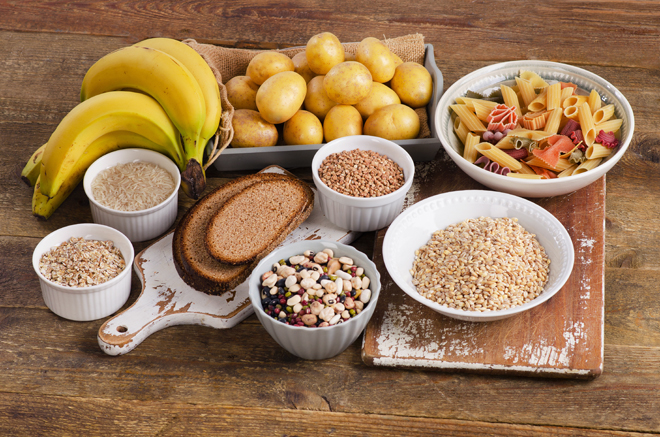Carbohydrates, the main source of our energy, are foods whose chemical constitution is based on a molecule of carbon, hydrogen and oxygen. Its main function is to give energy to the body and mind. The carbohydrate molecule, due to an enzyme called amylase, dissolves within the body, thus allowing it to obtain all the energy it needs for its day to day, that is, it allows the body and mind to use this molecule as fuel.
We therefore have that carbohydrates are necessary macronutrients that are obtained through food. There are three essential macronutrients: carbohydrates, protein, and fat. These macronutrients are vital for the proper functioning of the body. All of them must be obtained through food since the body cannot produce them on its own. We can distinguish between simple carbohydrates and complex carbohydrates.

Simple carbohydrates
- They are characterized by quickly converting into glucose: cookies, white bread, refined flour… They provide energy instantly after being consumed. If this energy is not spent in a short period of time, it is transformed into fat that remains stored in the body.
Complex carbohydrates
- They are also transformed into glucose, but much more slowly thanks to the fiber they contain. If you don’t expend energy right away, it’s just sitting there waiting: vegetables, whole grains, and whole grains are the foundation of simple carbohydrates. Keep in mind that the healthiest carbohydrates are those that have not undergone any transformation by humans.
Where are carbohydrates found?
- There are many foods that provide carbohydrates. As we have mentioned before, we can find carbohydrates in whole grains, vegetables, legumes, oats, corn, nuts, white bread, rice, tubers, barley, beans, fruits, pasta, refined or whole grain flour, sweets, potatoes and cereals.
What do carbohydrates give us?
- Carbohydrates give the brain and muscles the necessary energy for a long period of time. Fiber, vitamins, minerals and essential nutrients are also its characteristics. Healthy carbohydrates, that is, those that do not have an excess of sugars, contain a lot of fiber, essential for a healthy diet.
When to eat carbs
- When is it better to eat carbohydrates? At what time of the day? At a specific time? There is research that says that taking carbohydrates at night reduces the feeling of hunger during the day, others that say that it is better to take them in the morning to avoid excess weight. What all these studies do seem to agree on is that taking carbohydrates at one time or another will depend on the physical or mental activity that is going to be carried out. The greater the activity, the more necessary those carbohydrates will be.
- Many nutrition experts recommend eating carbohydrates during the day, since it is at those times (and not at night) that the body and mind expend much more energy.
How many carbohydrates should you take a day
- The recommended daily amount of carbohydrates for adults is 135 grams, according to the National Institutes of Health, an amount that can vary depending on one’s weight, height, and daily activity.
- Carbohydrate intake for most people should be between 45 and 65 percent of total calories. One gram of carbohydrates is approximately equal to 4 calories, so a diet of approximately 1,800 calories would have about 202 or 292 grams of carbohydrates. It should be noted that people with diabetes should not eat more than 200 grams of carbohydrates per day.
Should I eliminate carbohydrates from my diet?
- Absolutely NO. Eliminating carbohydrates from the diet slows down the metabolism, causes fatigue, generates constipation, vitamin deficiency, does not help to lose weight and rather translates into a loss of water.
- If you are one of those who continues to blame carbohydrates for weight gain, you should know that eating the right type of carbohydrates can help you a lot to achieve and maintain the right weight.
